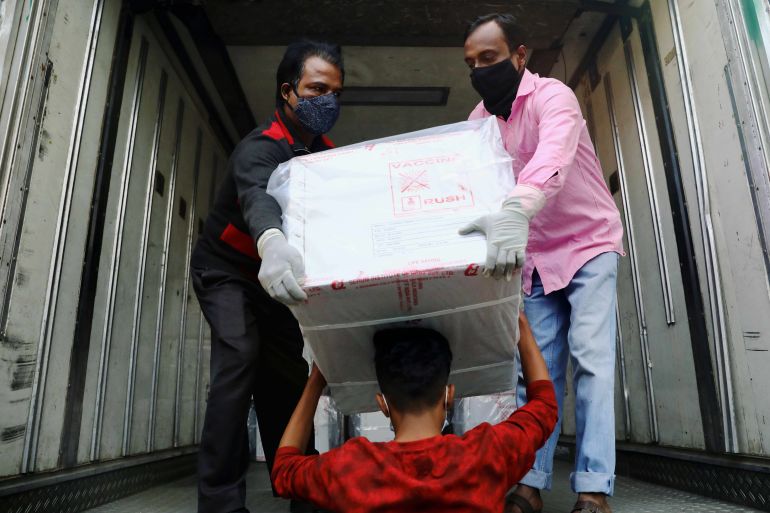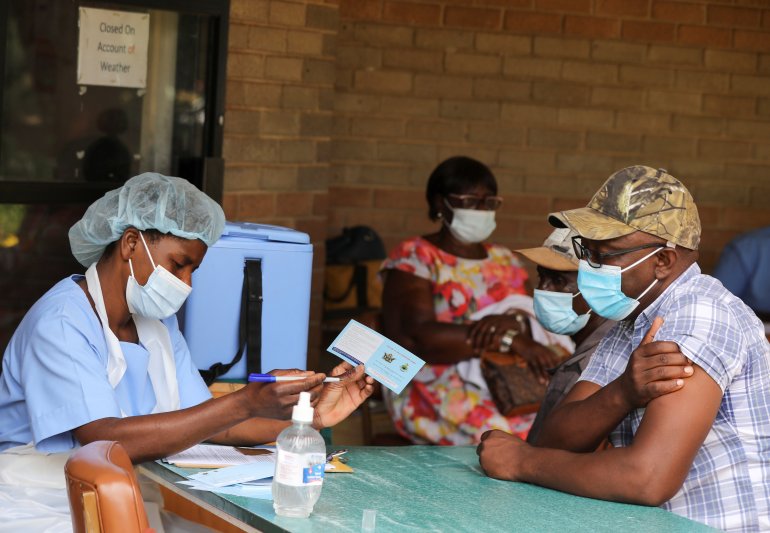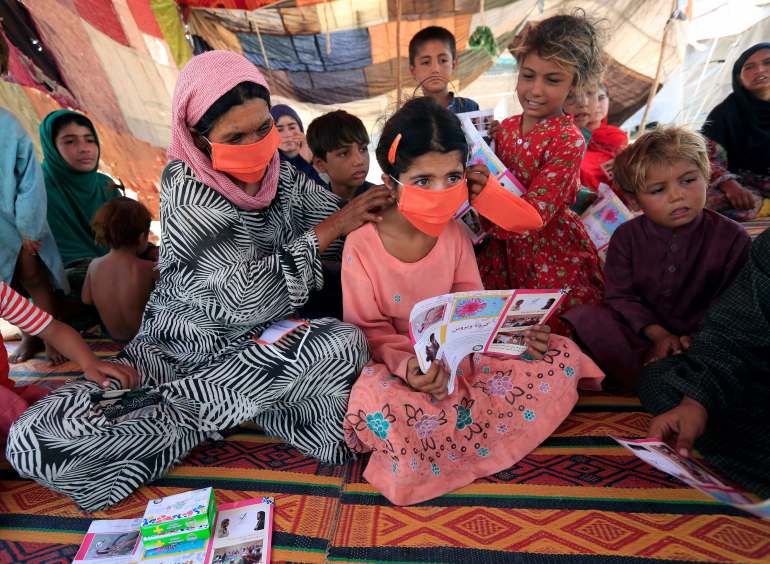A fair shot: World Bank, WHO urge unity in global vaccine efforts
Even after vaccinations are widespread, a small coronavirus outbreak anywhere has the potential to jeopardise economic gains and recovery everywhere, officials from the World Bank, World Health Organization and UNICEF said.

Financing, transparency in vaccine development, political will and global solidarity will all be essential in ensuring the world’s poorest countries gain access to coronavirus vaccines, officials from several major international organisations stressed at a World Bank forum on Friday.
“Where there are gaps, we must move quickly to fill them,” David Malpass, the president of the World Bank Group, said during the virtual panel discussion. “It’s critical to get economies growing faster and to keep more families from falling into poverty.”
Keep reading
list of 4 itemsWhat are SDRs and why are they a hot topic at the IMF meeting?
COVID sets gender parity back by a generation, report finds
‘Not a dry science’: A call for women economists
The World Bank and International Monetary Fund are holding their annual spring meetings this week with talks focused primarily on the economic recovery from the coronavirus crisis.
The two international finance organisations have spent the week assessing the damage, boosting their growth projections for some countries and voicing alarm that inequalities are growing and low-income countries are at risk of falling behind.
The money is great, but if you don’t have the vaccines, then we have no results.
Joining Malpass on Friday at the World Bank’s last public event of the week were World Health Organization Director-General Tedros Adhanom Ghebreyesus, United Nations Children’s Fund (UNICEF) Executive Director Henrietta H Fore, and World Bank Managing Director of Operations Axel van Trotsenburg.
Malpass urged governments to continue to ramp up vaccine production, efforts for which the World Bank has allocated $12bn.
He called for “greater transparency” around contracting arrangements between pharmaceutical firms and manufacturers to increase the direct flow of approved vaccines.
WHO’s Ghebreyesus called for a boost in global solidarity, adding: “The virus will not be defeated in a divided world.”

“If this pandemic is politicised, and if there is, especially, politicisation at the country level, then the crack between the different political positions could be exploited by the virus,” he warned.
Ghebreyesus explained that if the virus is allowed to circulate in some parts of the world, it will mutate and produce variants that may not be stopped by the vaccines currently available. Therefore, preventing another global outbreak requires all countries to have a vaccine plan and act on it to stamp out COVID-19 for good.
But the sheer scale of the global COVID-19 vaccination campaign is something even the most experienced in immunisations were unprepared for.
UNICEF chief Fore said that the organisation, on average, distributes some two billion routine immunisations a year to children for diseases like measles and polio.

“Now, we are procuring two billion additional vaccines for COVID. It is a massive procurement and supply operation,” she said.
World Bank financing and country readiness assessments have helped plug in missing pieces in the supply chain, Fore added.
World Bank chief of operations van Trotsenburg said that by the end of April, the bank will have committed another $2bn for vaccine efforts and will work with more than 40 countries on this effort.
“The money is great,” he said, “But if you don’t have the vaccines, then we have no results.”